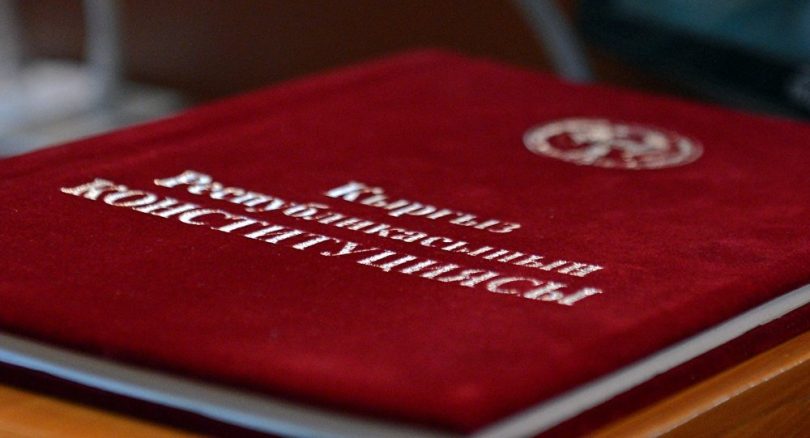Constitution of Kyrgyzstan: changes guide

| Probably, there isn’t a state the authorities of which not tried to push through unpopular measures either quickly or quietly. It seems that the people in power in Kyrgyzstan have the last target, launching the initiative of holding a referendum to amend the Constitution in the summer months. But the “White House” officials have miscalculated, naively believing that the citizens will be engaged in anything, but not politics.
Let’s do it fast? Not only ordinary Kyrgyz citizens – users of social networks, but also lawyers, international experts and even the country’s ombudsman have managed to express their negative opinion concerning the operation “New constitution in very short time.” Only Cholpon Dzhakupova (Bir Bol) and the leader of Ata Meken Omurbek Tekebayev, who probably for the first time in the history of Kyrgyzstan was not among the authors of the amendments, were among the deputies who had the courage to do it. However, the latter hastened to explain that he opposes the procedure of adoption of the amendments – hasty and secret, and he admits the need to change the Constitution. Naturally, the main socialist welcomes also an item on crimes related to Kumtor, as a man, who has always advocated the nationalization of the object. For some reason, the developers of the draft bill decided, along with the amendments to the Constitution, by the same document to fix the norm on statute of limitations for crimes related to the gold field (Article 2, paragraph 6). In particular, it is proposed not to apply the statute of limitations “to the persons who have committed misconduct in connection with preparations for the development and practical development of Kumtor gold deposit, as well as crimes against the interests of service at non-state enterprises and institutions engaged in the development of Kumtor mine.” Therewith, it is proposed to bring them to justice “regardless of the time of commission of such criminal acts,” except those who have already received court decisions on the application of the statute of limitations for them. Meanwhile, the judges… There are introduced a lot of amendments to the Constitution, the most dramatic and uncompromising of which are the changes in the judicial system. Here it is worth recalling that in fact, large-scale campaign to reform the third branch of power is carried out for a long time. Working groups have been created, there has been developed a package of amendments to the legislation, and if a new version of the Constitution will be finally adopted, then this area will not remain exactly in the form in which it currently exists. First of all because the developers offered an innovative measure, according to which the existing and future judges will be obliged to sign consent to wiretapping and access to correspondence. It’s surprising that ordinary Kyrgyzstanis welcome this innovation in social networks, but the experts do not show optimism for some reason. They also do not like the introduction of a new structure in the composition of the Judicial Council (JC) – the disciplinary commission. It is proposed to entrust it with the initiative on submission of a judge to dismissal. And not only at the Supreme Court, but also the Constitutional Chamber. But the servants of the Themis at places will be dismissed personally by the President, but without the consent of the JC, as it is now. Themis, bound hand and foot The current Basic Law provides rather an isolated work of the Constitutional Chamber – the last instance in litigation concerning the constitutionality of certain cases. That is its independence largely determines the freedom of the entire judicial system of the Kyrgyz Republic. But under new version it can go into a complete subordination of the people in power. Judges are to be obliged to submit an advance opinion on any discrepancies with the Constitution “to the President and the Parliament.” These all taking into account the fact that the law is adopted by the Parliament and is signed by the President. How they will give assessment to themselves (and most importantly, which one!) is unclear… Moreover, the Parliament and the head of state can consider a document for three months. If they do not agree with the conclusion of the Constitutional Chamber, the latter will have to overcome this position not by a simple majority, but by two-thirds or even three-fourths of the votes. In case of the adoption of the new Constitution, the judges will have to carefully control not only their direct responsibilities, but also to look after themselves in the whole, even after leaving office. For example, according to the idea of authors of the bill, it is decided to include the norm that “a person, dismissed from a post of judge for violating integrity demand, has no right to further hold public office and is deprived of rights to use the privileges established for judges and former judges”. The composition of the disciplinary commission, the procedure for its formation and operation will be also detailed in the Basic Law. |
URL: http://www.eng.24.kg/vlast/181567-news24.html |
















